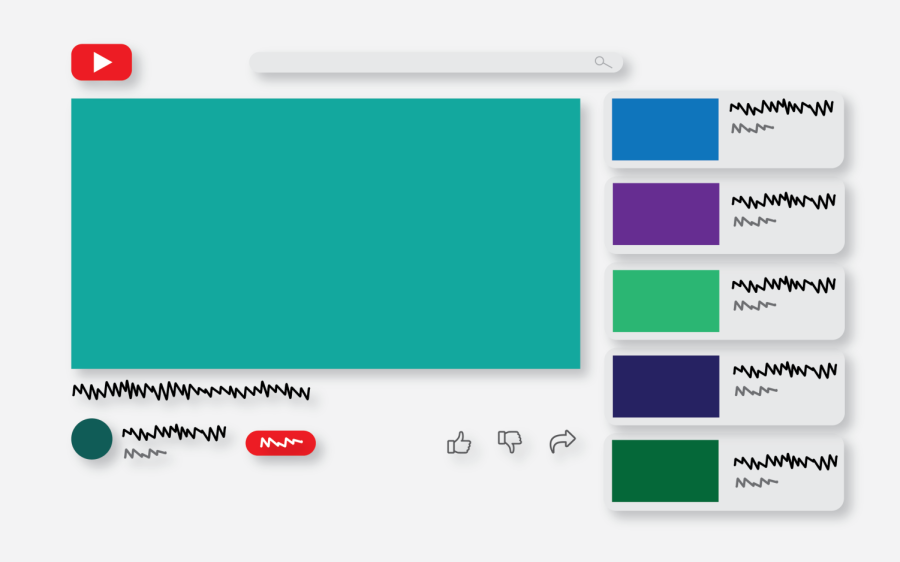How Video Essayists Are Revolutionizing Education Access
Clad in a witch’s hat and wand, surrounded by candles and equipped with a wry sense of humor, YouTube creator ContraPoints began her video essay on transphobic comments made by J.K. Rowling. Stylistic video essays like those produced by ContraPoints are a massive subgenre of informative internet content, encompassing everything from movie analyses to dense philosophical treatises. The explosion in popularity of this medium, with the aforementioned video garnering nearly six million views, has prompted discussion about the way the internet has changed education and access for better or for worse.
Alexandra Romanyshyn, an assistant professor of philosophy at Seattle University, discussed how the contemporary issues dissected in many video essays contribute to their appeal.
“There can definitely be a conception of academia, and especially philosophy, as just existing in their ivory towers and not really being in touch with the world,” Romanyshyn said. “When we look at ContraPoints, a lot of her work is centralized around tying these philosophical topics to contemporary issues like transphobia. It’s a format that’s accessible to a wide audience, and that’s not something philosophers have been good at historically.”
As college tuition rates continue to rise, the need for accessible and debt-free education has become more pronounced. Ella Ohlsen, a first-year international studies major, explained that video essays helped her decide what major she wanted to pursue in college.
“I watch video essays on a ton of different topics. I’m a huge Harry Styles fan, so I’ve watched a ton about him. Last night I watched one on food science, and the night before that one on the bombing of Hiroshima and Nagasaki. That interdisciplinary kind of learning really made it clear to me I wanted to major in something that gave me an academic foundation, and wasn’t hyper specific,” Ohlsen said.
Jason Wirth, professor and department chair of philosophy, believes that sparking an initial interest is vital to academic development.
“At universities, we are working with people who know the flame of thinking,” Wirth said. “That fire is already on, and we’re going to help them get skilled at kindling it. Wherever it ignites, it ignites. To the extent that the internet, or more specifically video essays, decentralizes knowledge and takes it out of the hands of the profit makers, they are good.”
Both Romanyshyn and Wirth expressed a hope that people who consume video essays or other online educational content will find something that ignites a desire to learn. They see this content as part of a wider process, not the end goal of education. Ideally, viewers would be pushed beyond the secondary sources and encouraged to read more deeply about the topics that pique their interest.
The internet has also brought about substantial challenges in the transmission of knowledge. The rise of infotainment has made misinformation easier to disseminate than ever, as Wirth points out.
“Reducing video to mere infotainment is not the fault of video, but those creating the content,” Wirth said. “Infotainment is a serious problem that reaches far outside of the realm of philosophy. The reduction of economic debate, political debate and serious reporting is a way of not doing it at all. The problem isn’t that it’s on TV or it’s on video, the problem is when these mediums are used to decimate intellectualism.”
Video essays aren’t necessarily forms of infotainment, says Romanyshyn, but rather a facet of an increasingly visual culture.
“People are going to consume entertaining media no matter what we do,” Romanyshyn said. “We can rail about the problems of the internet all we want, but it’s here to stay whether we like it or not so we may as well have it on our side.”
Video essays and the internet as a whole have completely changed the way we access, interact with and create educational content. They have the potentiality to impact the fields that students choose to pursue in higher education, introducing them to new topics through contemporary issues. Professors like Romanyshyn and Wirth emphasize the importance of not solely relying on internet content like videos by ContraPoints or blog posts on philosophy forums, but pursuing further reading and academic development to broaden one’s own understanding.










